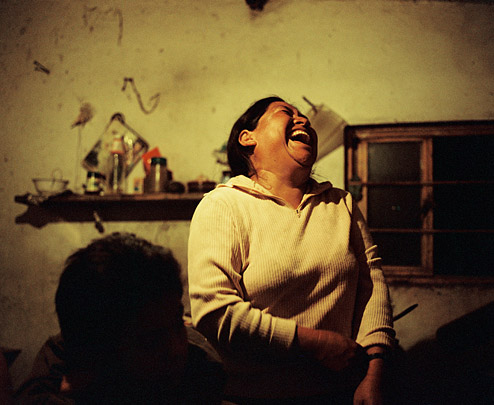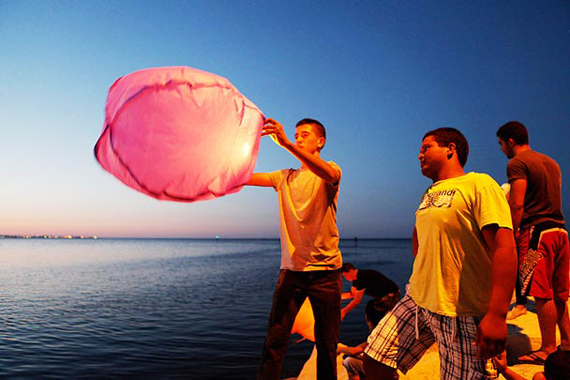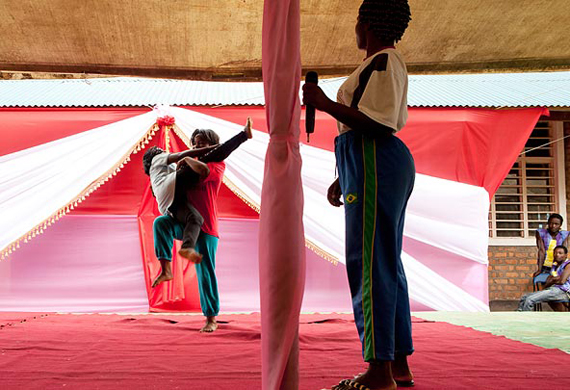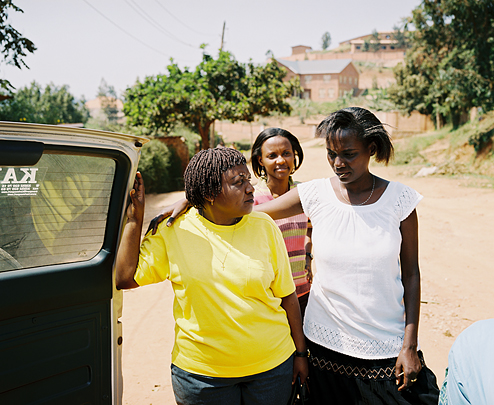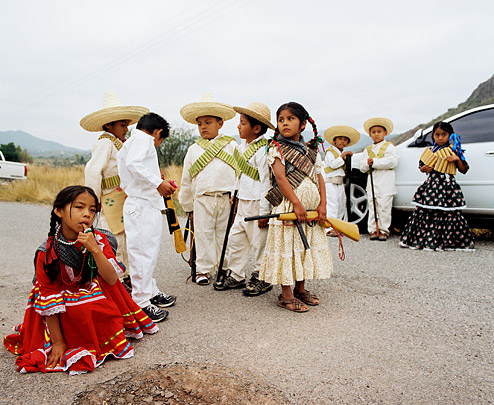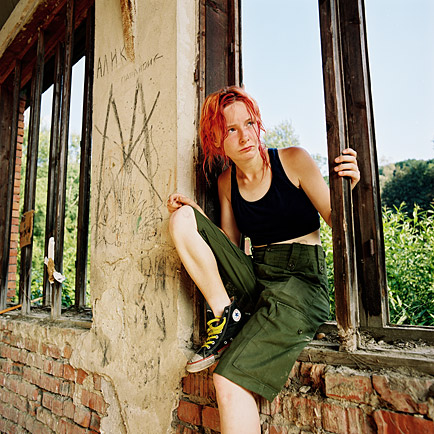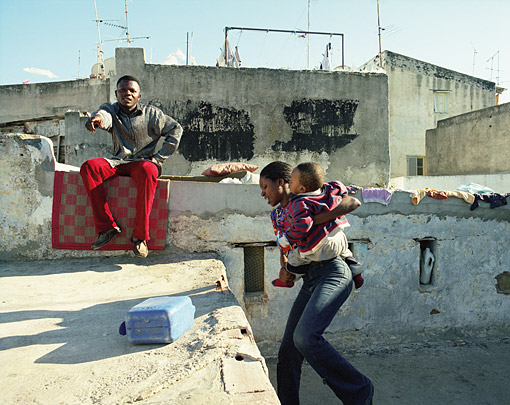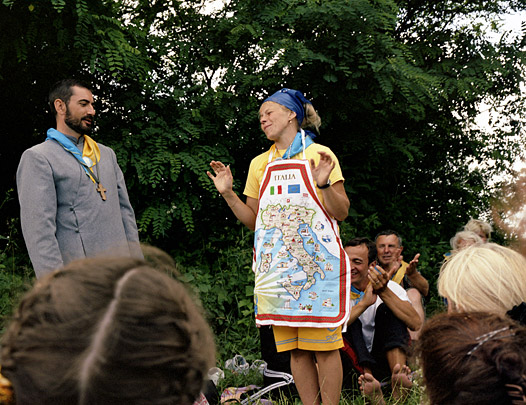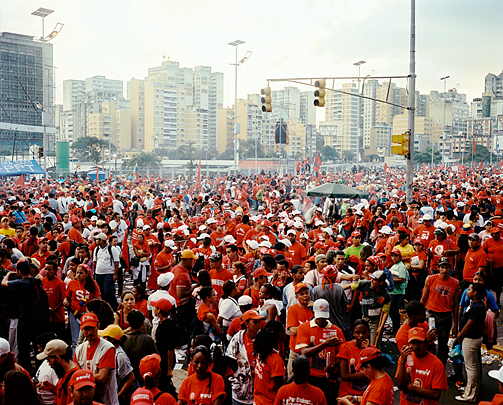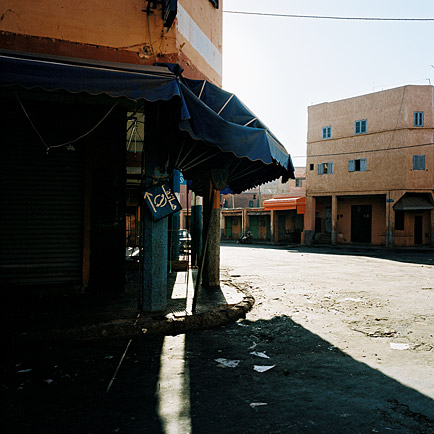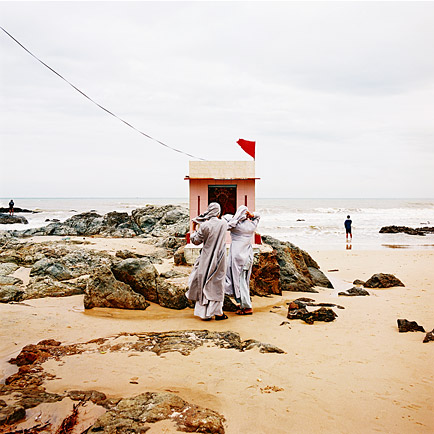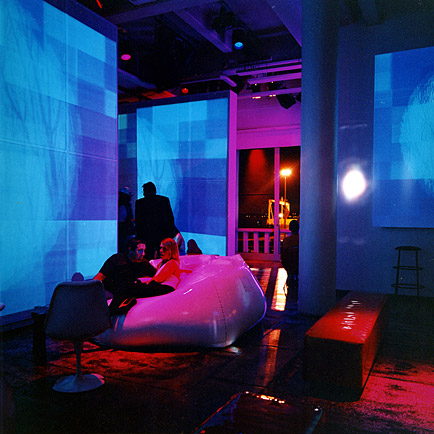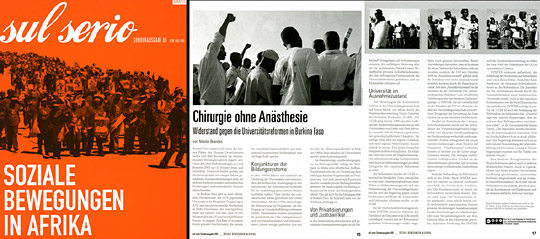

6m2 rule-of-law state
The reality of asylum in Europe
Germany, France, Spain 2006
"Eat-sleep-eat-sleep. Day in, day out. Although every person actually gets born with a purpose. Why am I not allowed to work? I would do any work, and I would pay taxes, as well! Instead, I am stuck in these woods and cannot do anything. We're completely isolated here. The next village is a four kilometer march away. When I walk, I incur a penalty as soon as I leave the county. I feel like an inmate, even though I'm only seeking asylum."
Abdoulaye, Burkina Faso
Every person seeking asylum in Europe is entitled to a fair trial. In practice, the EU states try to organize the stay of asylum-seekers as dauntingly as possible and to avoid their integration from the first. A central component of these politics are the big refugee camps which are emerging everywhere in Europe and beyond the borders despite declining numbers of asylum-seekers.
Refugee camps are often situated far away from cities, at places without any infrastructure. One of these is located in Brandenburg, deep inside the woods: the home for asylum-seekers Waldsieversdorf grants the refugees six square metres of living space.
...
...
Additionally to the constriction and lack of privacy inside the camp, there are discriminating surrounding conditions, such as lacking working permits, food supply via tokens or packages, restricted medical supplies, and the so-called "residence obligation", prohibiting the asylum-seekers to leave the whereabouts without an official permit.
Noel from Ivory Coast calls his place of refuge an "open-air prison". A considerable amount of the refugees escapes the isolation of the camp and prefers a life of illegality. Those persons especially are exposed to a high risk of arrest as detainee to be deported. At the end of a degrading stay as unwanted refugee in Europe, many awaits an officially enforced "voluntary departure" or deportation.
